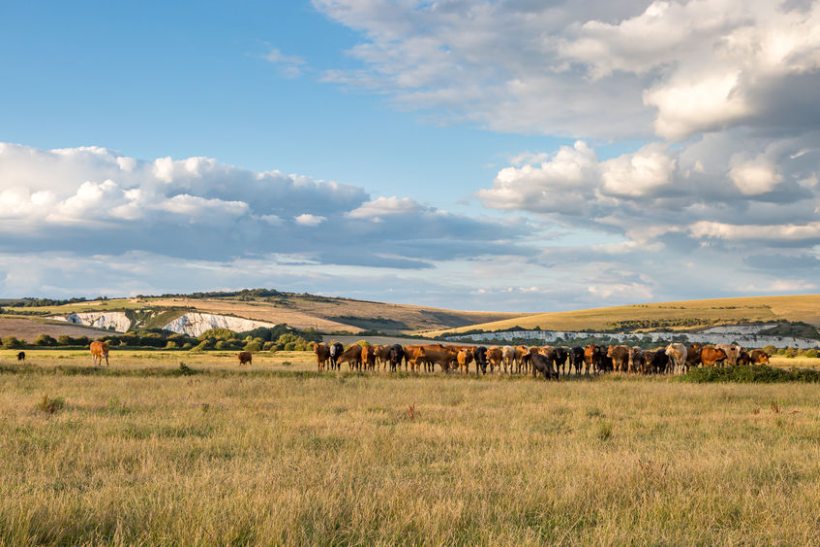Climate change: Cattle heat stress and late blight to 'increase'

Climate change will have a major impact on farming sectors, according to new projections by the Met Office, including an increase in heat stress in cattle and late blight in crops.
The Met Office examined the effect of climate change on the dairy and potato farming sectors over the next thirty to fifty years.
It found that heat stress in dairy cattle is projected to increase significantly in key dairy regions of the UK, particularly South West England.
The study also covered the climate change impacts on the potato sector due to late blight, a disease affecting potato crops which occurs in warm, humid weather.
The UK region with the largest herd of dairy cattle is the South West, where there are around 750,000 dairy cattle, according to the latest figures from Defra.
The study shows that heat stress conditions are met around two-to-three days per year, but in the period 2051-2070, this could extend to around one month per year on average.
Dr Freya Garry, the author of the study, said Met Office projections showed the potential for 'major climate change impacts' on UK farming.
"Our study found that future dairy cattle in parts of the South East may be exposed to heat stress for an extra two months per year.
"At the moment, cattle in the South East experience around a week per year of these stressful conditions.
"Given the potentially serious consequences for UK farming, we felt it was appropriate to work with a high impact scenario.
"Even under lower emission pathways, we know that our climate will continue to change so even if the impacts are smaller than identified in this study, our study provides useful information for adaptation planning.”
On average the East of England and the South East England regions are likely to see the greatest number of days per year where cattle experience heat stress – around a month and a half on average across the region.
Other regions which are likely to see prolonged periods of heat stress are the West Midlands and the East Midlands.
In terms of late blight, this crop disease is likely to occur more often across the UK in 30-50 years' time, according to the Met Office, with the greatest increases in western and northern regions.
In east Scotland, a region which currently has a high concentration of potato farming, potato blight may occur around 70% percent more often.
Most potatoes are grown in the east of the UK, where potato blight occurs less often, and so there are likely to be smaller increases of 20-30% in key regions for potato growing in England compared to today.
The study said: "Both food for cattle, crops for humans, and potato growing will all be threatened by increased drought in the future, which we tend to experience when we have particularly hot dry summers, such as 2018."
The paper – “Future climate risk to UK agriculture from compound events”– has been published in the journal Climate Risk Management.








